
Restaurants
Spa
Day Visits
Shop
Functions
16°C
June 18th, 2024
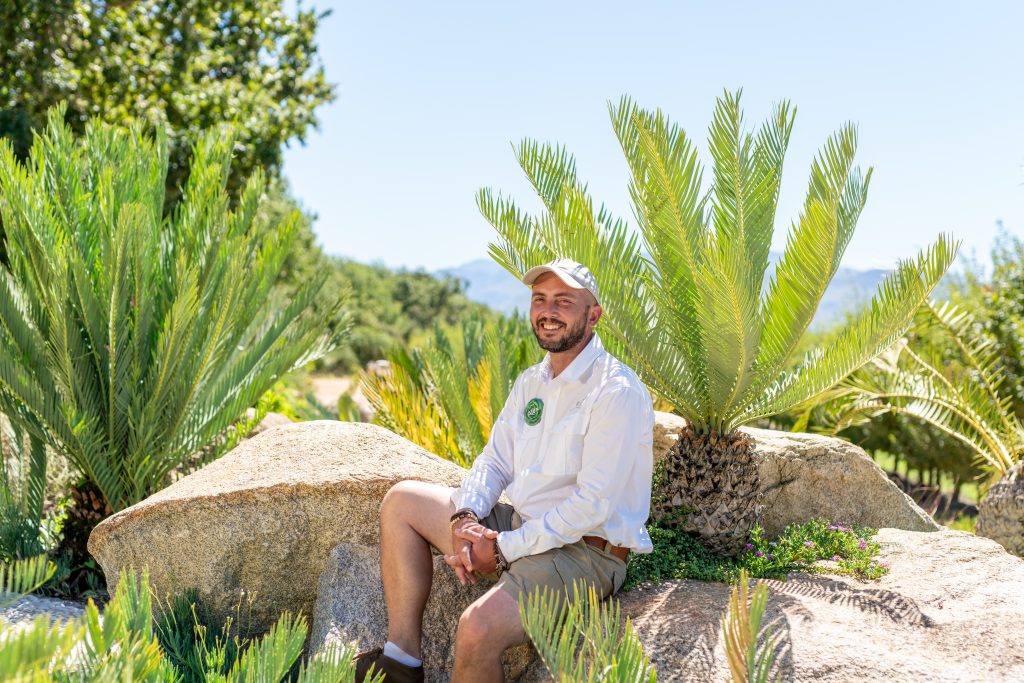
Our garden inspires, soothes, educates and heals. It is a wonderland where form embraces function in fluid synergy with the seasons. One could be forgiven for ascribing its more unbridled flourishes and pockets of abundance to mere happenstance – to take the rosy view, rather than face up to spreadsheets filled with shifts, irrigation schedules, soil analyses and troublesome tools. That would be Alex Bosman’s job. And he wouldn’t have it any other way.
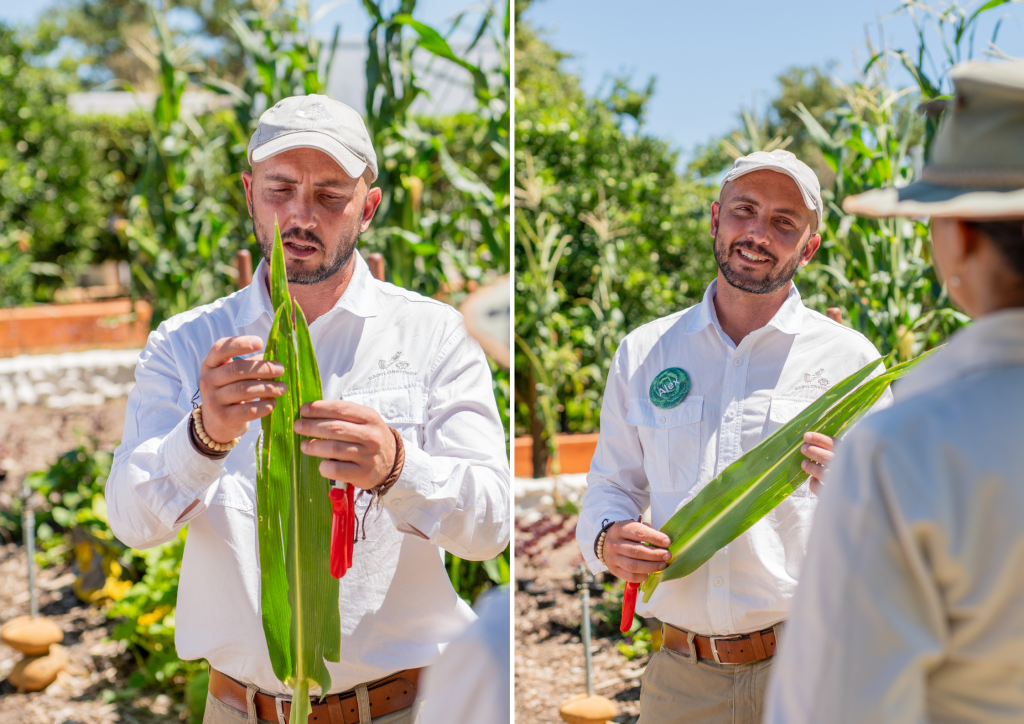
“I chose to study landscape technology, rather than landscape design, because I love the technical detail of planting. It suits my personality type,” he says. Alex joined Babylonstoren as head gardener in September 2021, after spending five years in the Free State as a biological pest and disease control specialist that also focused on soil health in the agricultural industry. It was a job that forced him to research biological and organic farming practices, compared to conventional chemical farming.
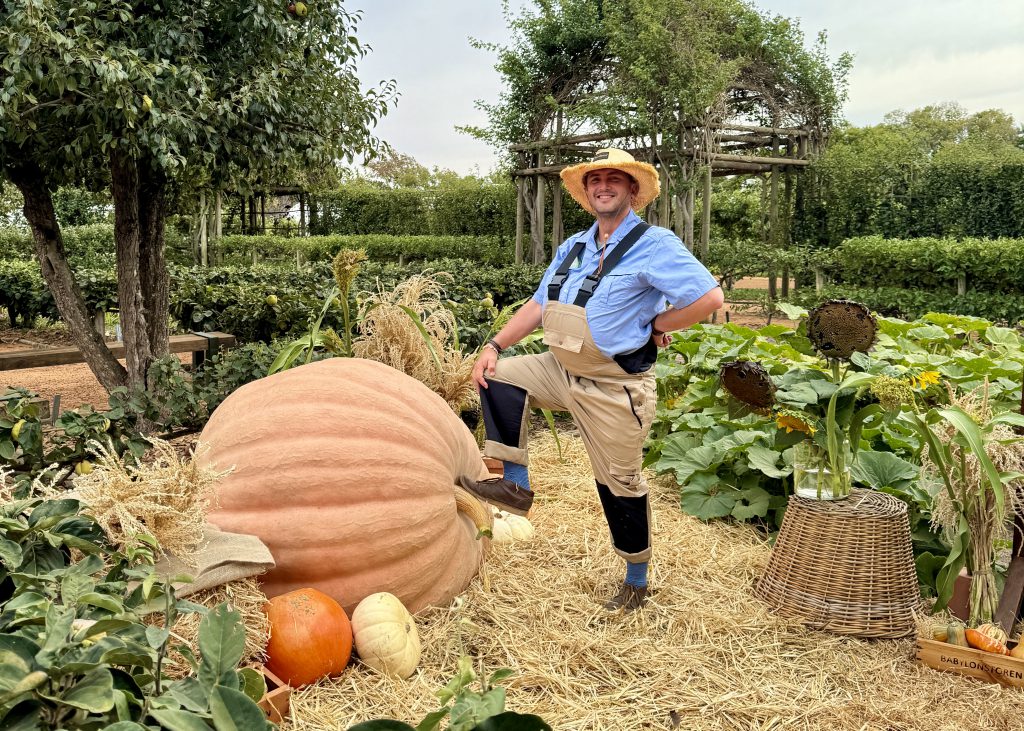
“When you ignore the biology of soil, it quickly turns into a dull repetitive cycle of soil degradation. The moment you improve soil biology and bring the natural balance of nutrient cycling back, the results have the potential to contradict historic data and research. In the Free State, Alex incurred first-hand experience of how healthy soil translates to visually beautiful produce that also tastes better, with extended shelf life. “When produce is grown in a balanced and sustainable manner, the fruit or veg will be more nutrient dense. As a result, it does not rot easily. After harvesting it would wilt or dehydrate from natural moisture loss, rather than rot from pathogen infections.”
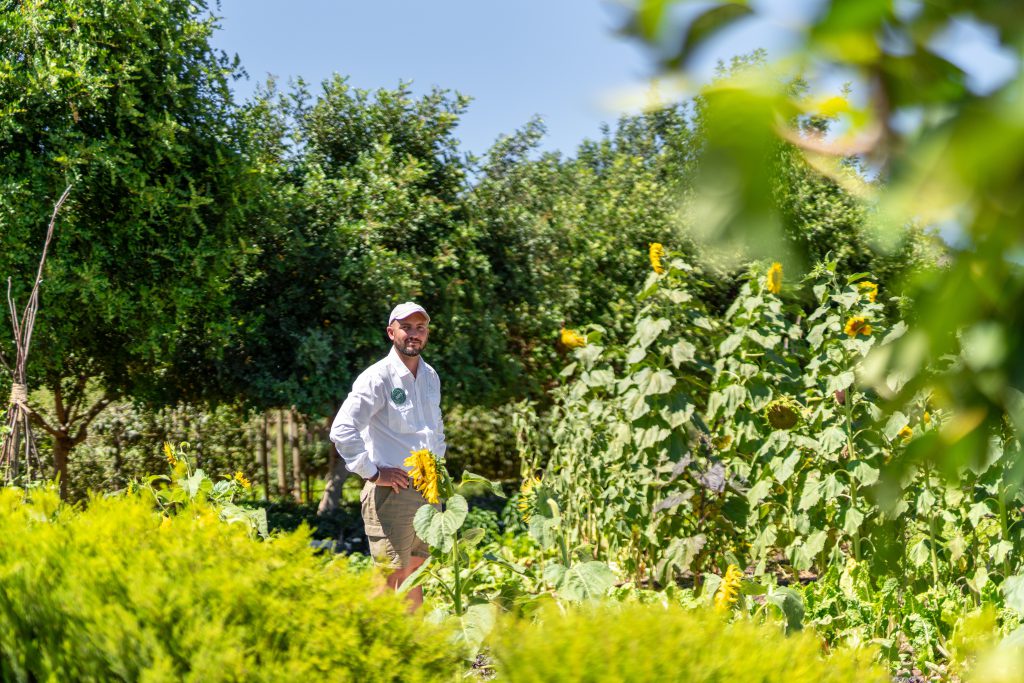
The decision to relocate to Babylonstoren was an easy one to make. “If you’re in the gardening business, you know about Babylonstoren. It’s an iconic garden. I had my first physical encounter with the garden when I visited the Western Cape in 2014.”
Managing a multifaceted, renowned garden is not all birdsong and dew drops. Alex now seldom gets soil on his hands. “Ninety percent of my day is spent in meetings, having all the necessary conversations. And the conversations are massively diverse. With Elzé Bresler, our tunnel farmer, it’s highly specialised agronomy. With Didi Brink from Fresh Produce its production and processing. With Tourism it’s people, people skills, and also the logistics of transporting guests and ensuring everyone’s safety in the relevant areas. Our construction sites also have health and safety components, on top of the soil demands. The job is incredibly diverse,” he says, not without a hint of satisfaction.
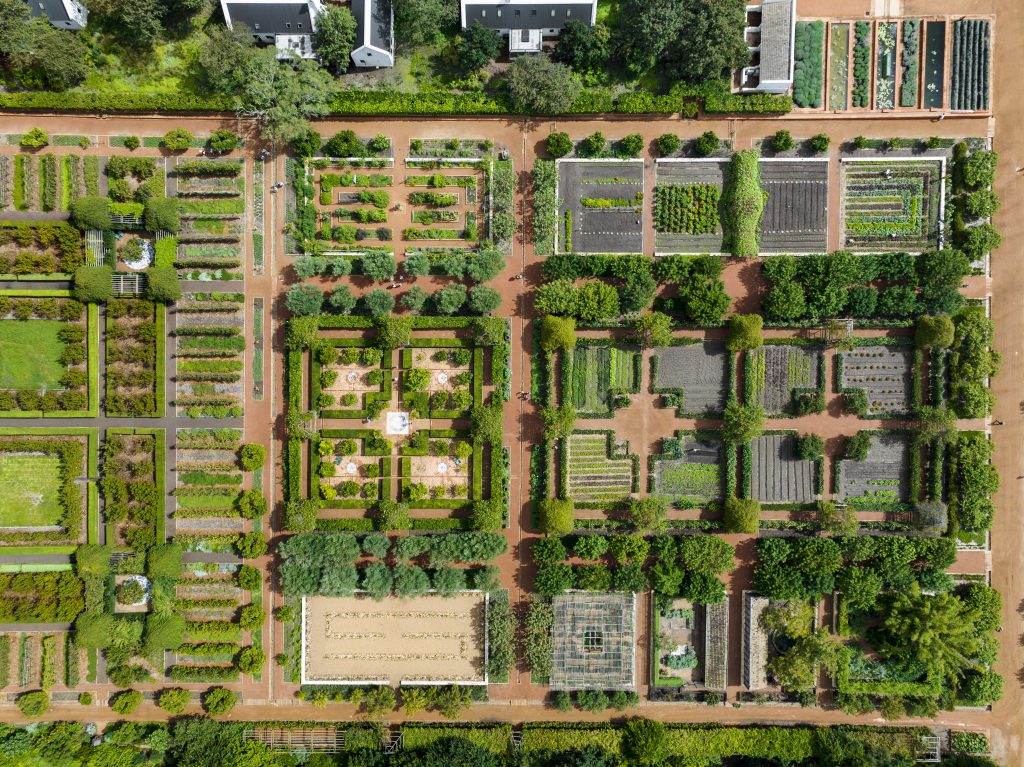
Seen from above, given its formal layout, the garden resembles a giant jigsaw puzzle. It’s an apt metaphor for how Alex approaches his job. He’s intensely focused on big decisions that have considerable financial implications. For that, Babylonstoren brings him in constant contact with three of his great loves.
Firstly, people. “I love to see people grow. It gives me huge satisfaction. Everybody loves the garden team and wants to work with them. Everyone comes to recharge with us. It’s always a positive environment. Yes, we’re a bit like the proverbial duck on water: peaceful on the surface, while below water we’re paddling like mad. But to give a young gardener the opportunity to complete a course, or to get their driver’s licence, gives me great joy,” he says. He also encourages established gardeners to cultivate their dreams. “I believe there’s a book in every gardener. Like with Oom Anton Roux’s book (Prune Like a Pro) which Babylonstoren is publishing a few months before his 85th birthday.”
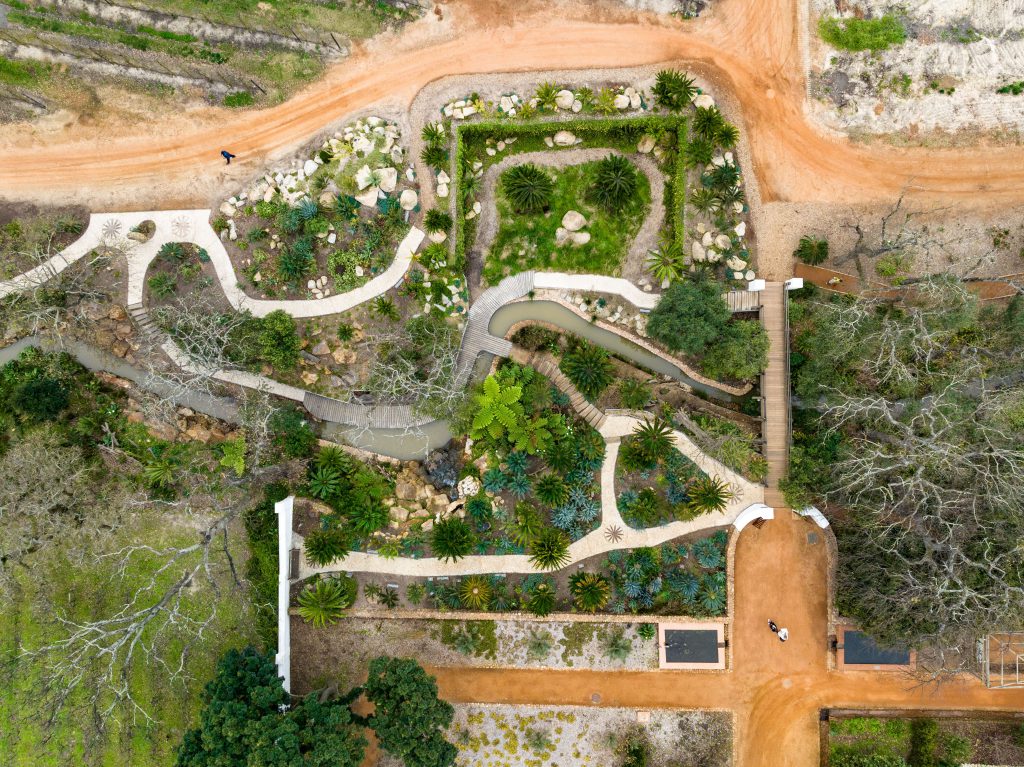
His other great love is trees. Trees are his favourite plants, with cycads being his first and enduring passion. His third love is soil health and agronomy. “I absolutely love soil analysis as it leads to improved soil, water and fertilisation management. I love sharing that knowledge. I love sharing, full stop,” he says. Alex is most proud of the garden’s excellent soil health and its tangible, measurable benefits, like reduced disease and insect damage in the garden.
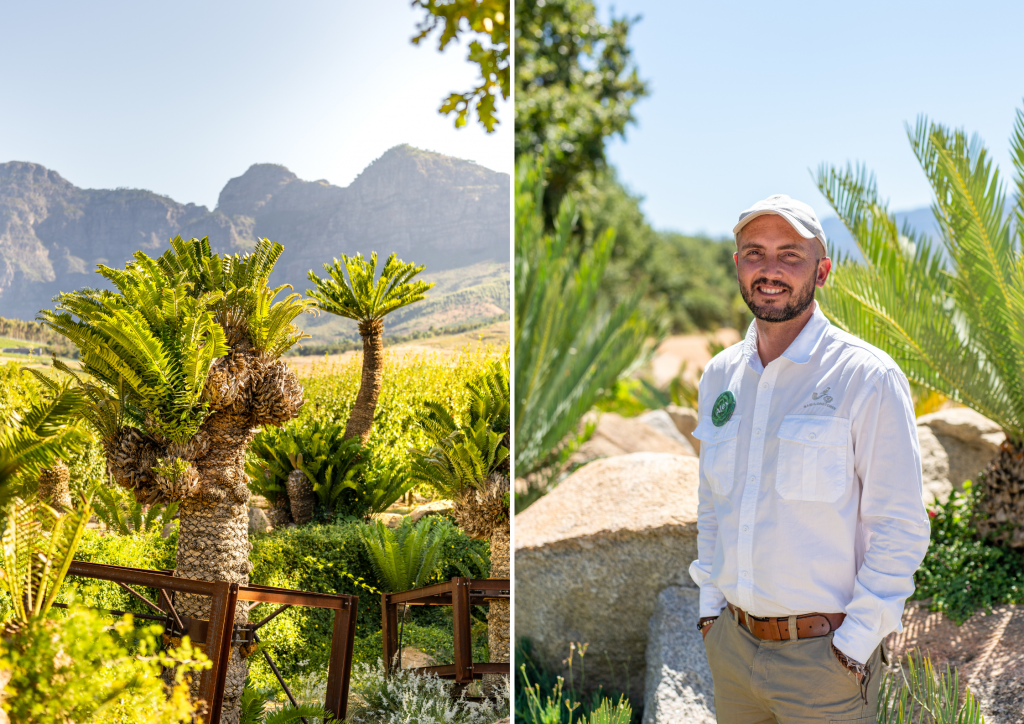
All of this is achieved in a living, beautiful garden that accommodates guests daily.
He credits his garden team with being adept at hiding the “ugly stuff” – the hard plastic necessities of gardening and irrigation. “We try to make the garden look as natural as possible. Cleverly concealed parts are connected to sensors and weather stations, in order to monitor our water consumption. Water is critically important. A garden, unlike a farm, cannot measure consumption against output. How do you measure the beauty of a garden in relation to its water usage?”
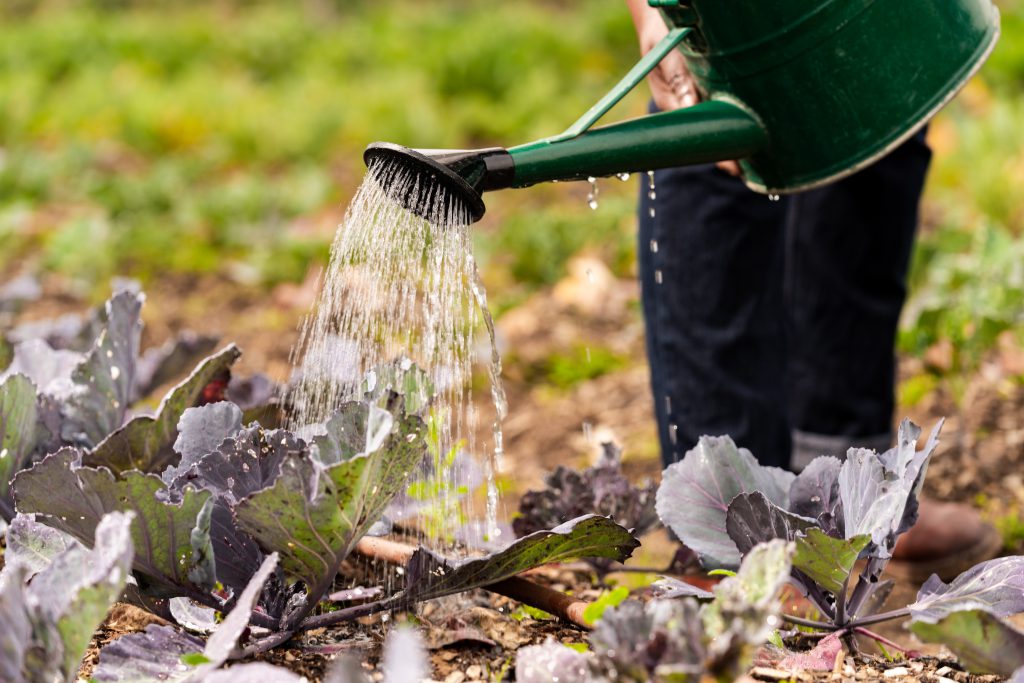
The conversation has come full circle to sustainability – an area of growth that excites Alex. He feels there is much to learn and teach in terms of regenerative farming. “We teach our interns here on the farm, but there is no institution in South Africa where one can study sustainable, regenerative farming practices. I would love to start a school to that end,” says the grower of plants, people, and sensible systems.